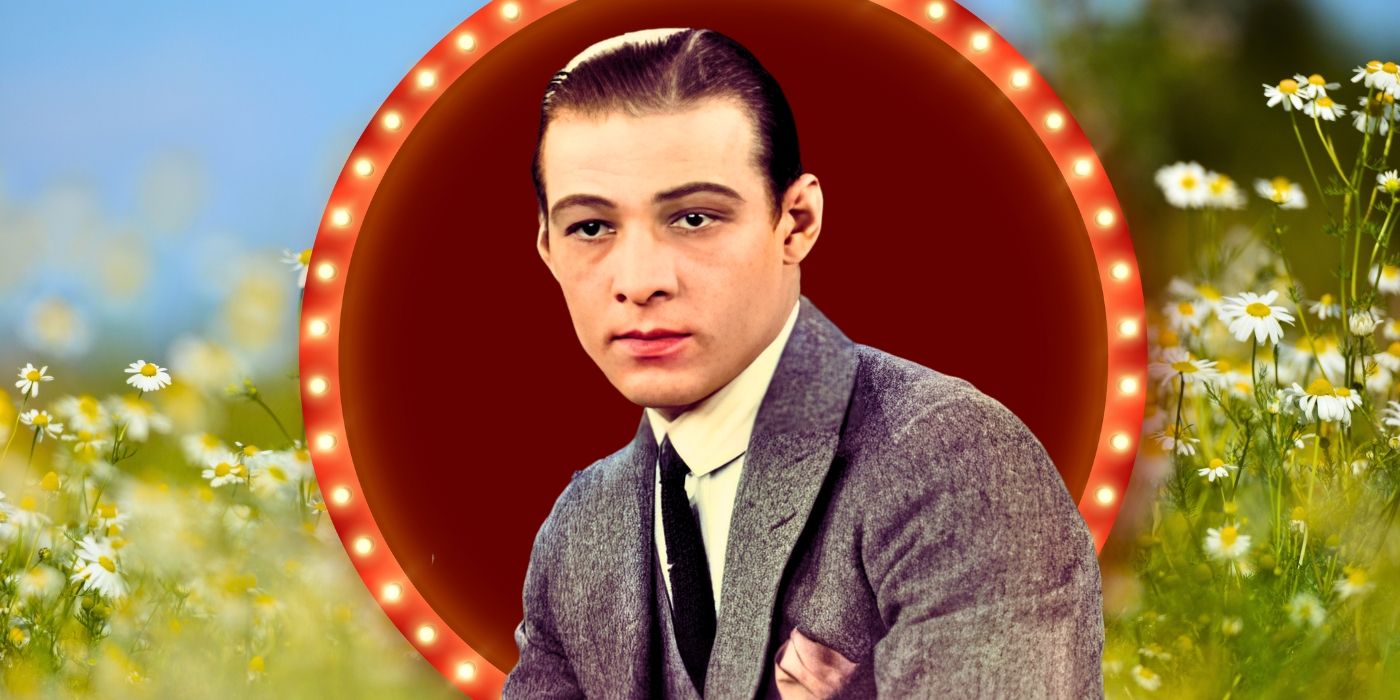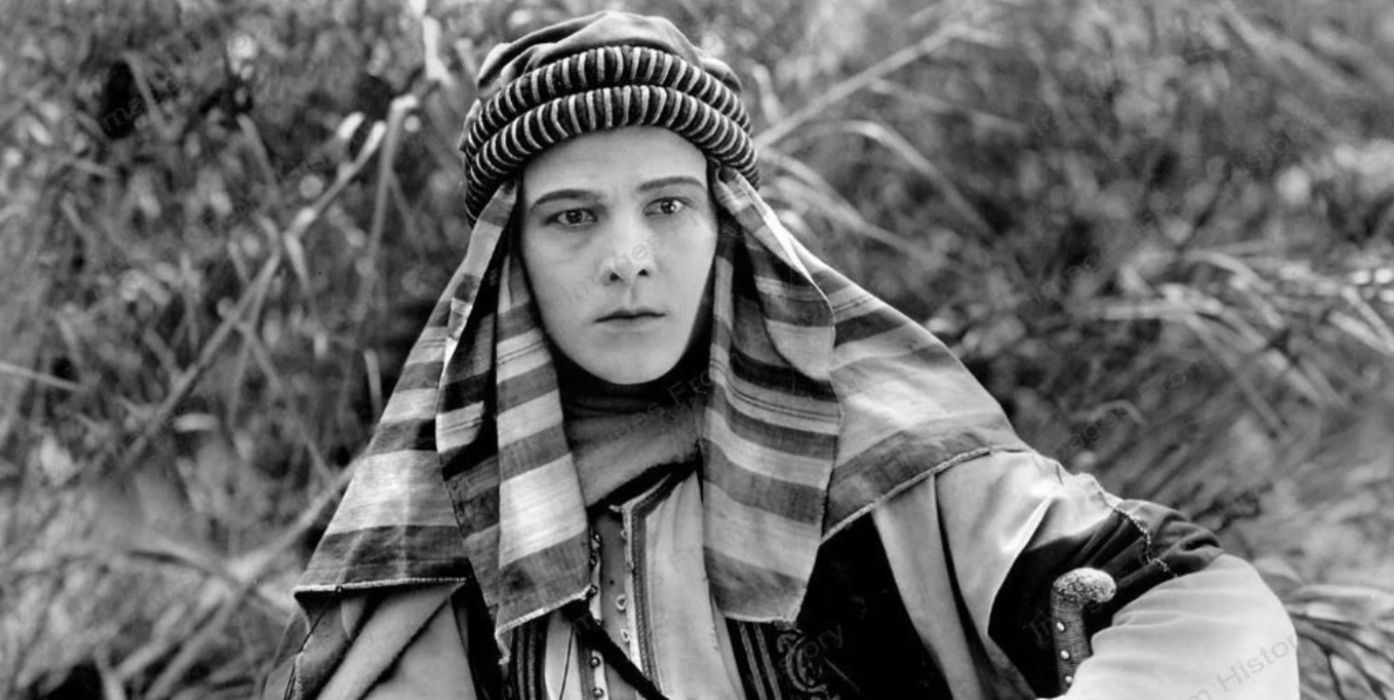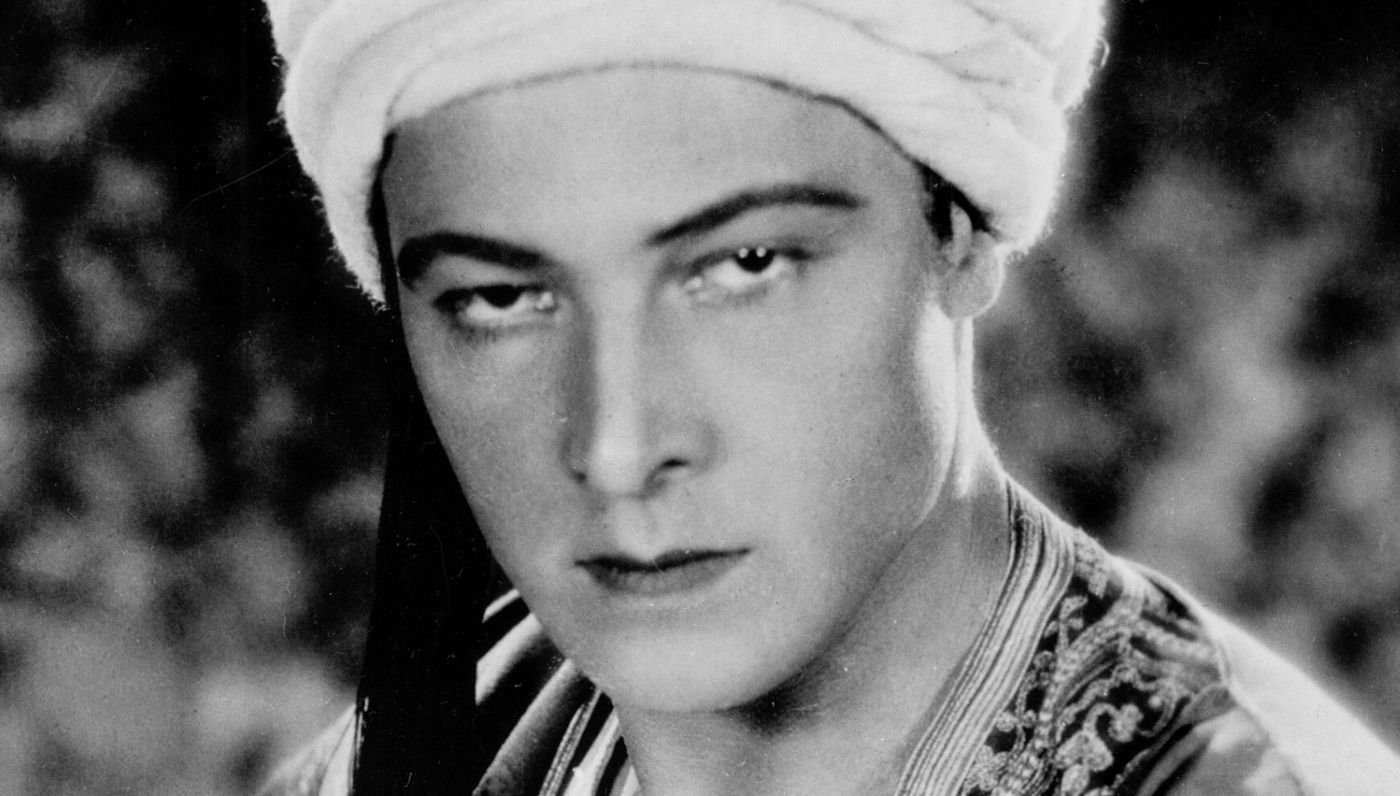The Big Picture
- The death of a favorite celebrity can be a painful experience, but for most of us, the pain fades quickly as we continue to see them on screen, dead or alive.
- The passing of a celebrity can sometimes result in grand displays of mourning and honor, such as state funerals and statues, but Rudolph Valentino's death was particularly shocking and sparked mass hysteria.
- Despite not being widely known today, Rudolph Valentino's impact is still felt in various ways, including biopics, songs, and even a medical condition named after him. Silent cinema stars deserve the love and respect they always deserved.
It's always rough when your favorite celebrity dies, whether it be a musician or a movie star. You think back on the impact they had on your life, or how they inspired you. Maybe the one time you were lucky enough to meet them. If they pass away suddenly, or at a young age, the added shock can hit you even harder, the idea that someone was in their prime, or in the middle of an ongoing career, is now gone forever. You won't get to hear new music or see them in new movies; all there is now are the ghosts on film and on the radio.
As hard as this can come, for most of us, this pain leaves rather quickly. At the end of the day, we don't know these people, we won't feel the emotional weight of bereavement that their family and friends do. As upsetting at it may be, when your favorite movie star dies, your relationship with them doesn't change a lot, you can still see them on a screen, dead or alive, just nothing new. There are times when the passing of a celebrity can be followed by a lot of pomp and circumstance, such as a state funeral, or one that is televised, high honors given to people who have had a significant effect on culture, and did their country proud. Specials, shrines, statues ... these are the things people expect after the death of a media icon. Mass hysteria, rioting, and death? That's a whole other story, but it is a true story. It's always a tragedy when a star is snuffed out while burning the brightest, but no movie star's death has ever hit so hard as that of silent-era superstar Rudolph Valentino.
Who Was Rudolph Valentino?
Unless you're incredibly brushed up on your silent film history, one may struggle to come up with more than maybe three stars of this era off the cuff. Charlie Chaplin or Buster Keaton? Maybe Max Shreck and Lon Chaney for the horror fans? Nowadays, the name Rudolph Valentino eludes the general populace. Born in Castellaneta, Italy by the name of Rodolfo Pietro Filiberto Raffaello Guglielmi di Valentina d'Antonguolla, his early life was mired with tragedy, losing his father and sister at an early age, but he lived quietly until moving to New York at 18. Valentino started from the bottom, going from odd jobs bussing tables and grounds keeping, to working in a cabaret as a paid dance partner, before traveling west after a possible affair and a shifty arrest by the influential jilted husband.
He was 22 by the time he made it to Los Angeles, continuing to dance and teach dancing, which he used as a diving board into film. It was not an easy start for him. While he was equal parts handsome and charming, he didn't fit the archetype for a Hollywood hero in the early 20th century. He wasn't some blue-eyed, fair-skinned, All-American heartthrob, and being from southern Italy was too exotic for the studios, so he was cast in bit parts as gangsters and heavies. He eventually got his breakthrough role in 1921's The Four Horsemen of the Apocalypse, and thus began the career of silent Hollywood's Latin Lover.
'The Sheik' Skyrockets Valentino To Silent Stardom
There is far more to this story, of course, than Valentino's death, or the parts of it that are steeped in legend and myth. Emily W. Leider painstakingly researched and chronicled Valentino's life, career, marriages and pathos in her biography Dark Lover: The Life and Death of Rudolph Valentino. This being a story of a man who was incredibly ahead of the times, who would've likely earned more success in any era after his own, but after his big debut, while the studios wouldn't admit it, Valentino became a hit very specifically with the ladies. Much to the resentment of American men, who constantly questioned Valentino's masculinity, considering him a dandy, a fop, and later, rumors about his sexuality began popping up. But it didn't matter really, the same criticisms have been levied at every dreamboat that women find irresistible, but "alpha males" see as weak and delicate. It confounded them that women weren't liking what they were telling them to like, the stolid, milquetoast heroes of silent cinema being pushed aside for the exotic man with the perfumed suits.
Valentino rocketed to stardom, with highly successful roles back to back, most notably as Sheik Ahmed Ben Hassan in The Sheik, also in 1921. Despite being an Italian playing an Arabic man, Valentino made an active effort to shift away from harmful stereotypes, and shut down any idea of the "foreign savage". He would continue to dance, and act for multiple studios, as well as write poetry and dip his hands into film production, for the next five years.
The Unusual Aftermath of Rudolph Valentino's Death
In 1926, Valentino started suffering from sudden and severe abdominal pain, which turned out to be a nasty combination of appendicitis and gastric ulcers. After surgery, his condition rapidly worsened, his lungs and abdominal organs becoming enflamed, falling into septic shock, and within a week he slipped into a coma he would not wake up from. Rudolph Valentino passed away on the 23rd of August 1926, at 31 years old. The suddenness and age in which Valentino died shocked Hollywood, and would probably still shock us today. But what isn't normal was the mass hysteria that followed.
It started at his funeral, with a reported 100,000 people showing up to pay their respects, people pushing and shoving, breaking windows to get in as a full riot broke out in the streets of Manhattan. Even a funeral wasn't safe from publicity stunts and flairs of the dramatic, with Frank Campbell Funeral Home paying actors to come dressed as agents of Mussolini to pay their respects, and Polish actress and lover of Valentino Pola Negri collapsing over his grave in hysterics. His final film, The Son Of The Sheik, premiered posthumously, which was highly lauded and only allowed for the grief to settle in deeper.
It came to a point where there were reports of suicide attempts over his death by despondent fans, though only a couple have actually been confirmed, namely Peggy Scott, a young actress who was found dead and surrounded by photographs, letters between her and Valentino, and notes describing her grief at his passing. He even had a figure similar to the Poe Toaster, the mysterious figure that would show up with roses and cognac for the dead poet. The Woman In Black possibly predates the Poe Toaster, at first a 1928 publicity stunt, a woman in dark clothing who would show up at the anniversary of Valentino's death to place red and white roses at his grave. More would show up, seemingly fighting for the position and trampling on the roses of others, so they could be the ones spotted by the press.
It has now been almost a century since his death, and all of this seems quite unbelievable now. After all, many wouldn't say his name in the same breath as Keaton or Chaplin. But even if he's not a household name anymore, his ghost can still be seen everywhere. Naturally, in the literal sense, his ghost is reported to be seen around Hollywood, but I mean more in his lasting impact. There have been seven biopics about his life, songs referencing his legacy from artists such as Bob Dylan in "Goodbye Argentina" and Queen in "Good Old-Fashioned Lover Boy," the world-famous fashion designer Valentino was named after him, the specific illness that caused his death is now known as Valentino's Syndrome, and his hometown of Castellaneta has services and statues in his honor.
It all feels like ancient history now, it's hard to imagine thousands of people mourning so deeply over an actor from hour-long films with no sound, but those formative years of silent cinema can shape our culture decades later, and the stars who could've been great if it weren't for the restraints of the time and place finally get the love and respect they've always deserved.




